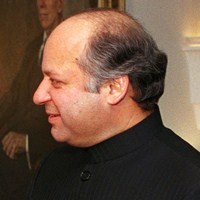Pakistan’s elections Saturday will be the first time in the country's 66-year history that things are going according to plan: A democratically elected civilian government completed its five-year term, ceding power to a three-month caretaker government that will oversee another election.
Nonetheless, political violence in the past few weeks has effectively restricted campaigning to a single province, Punjab. This will all but ensure that the increasingly unpopular incumbent Pakistan People's Party (PPP), whose campaign has been curtailed by the violence in its electoral strongholds, is removed from power. But even if the PPP had not been kept from campaigning, it is clear that Pakistan's next government would have been led by one of the two rightist parties currently leading in the polls, the Pakistan Muslim League-N (PML-N) or the Pakistan Tehrik-e-Insaaf (Movement for Justice, PTI), with odds heavily favoring the former.
The PPP was swept into power in 2008 by a wave of sympathy after its leader, former Prime Minister Benazir Bhutto, was killed by the Pakistani Taliban. Five years later, the PPP is seen by most Pakistanis as corrupt, apathetic toward massive energy and economic crises and too close to the United States in the war on terror.

